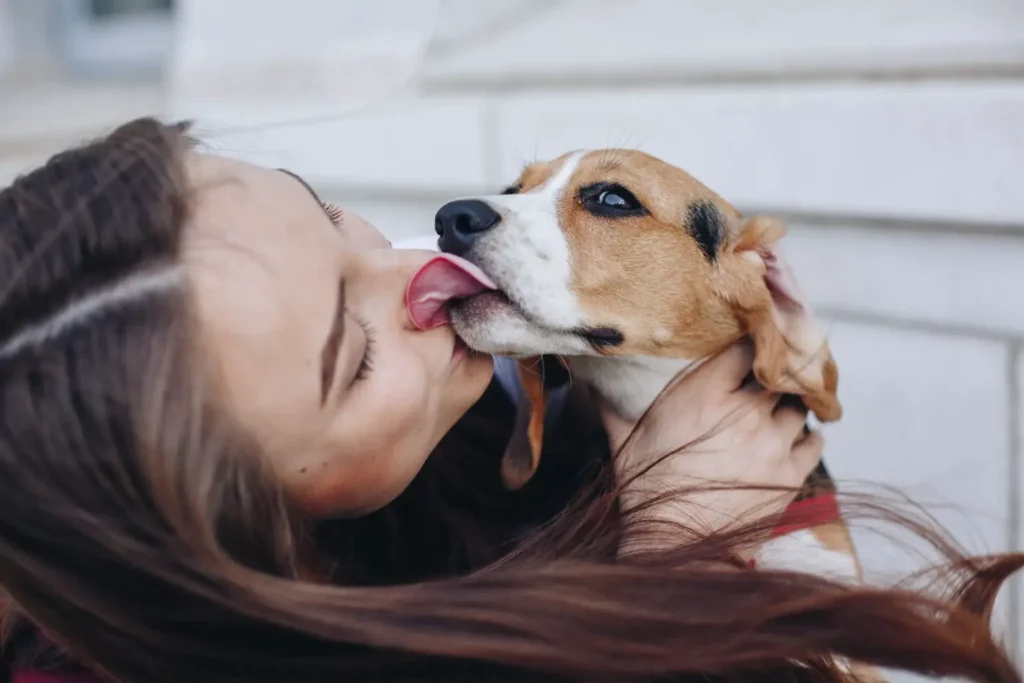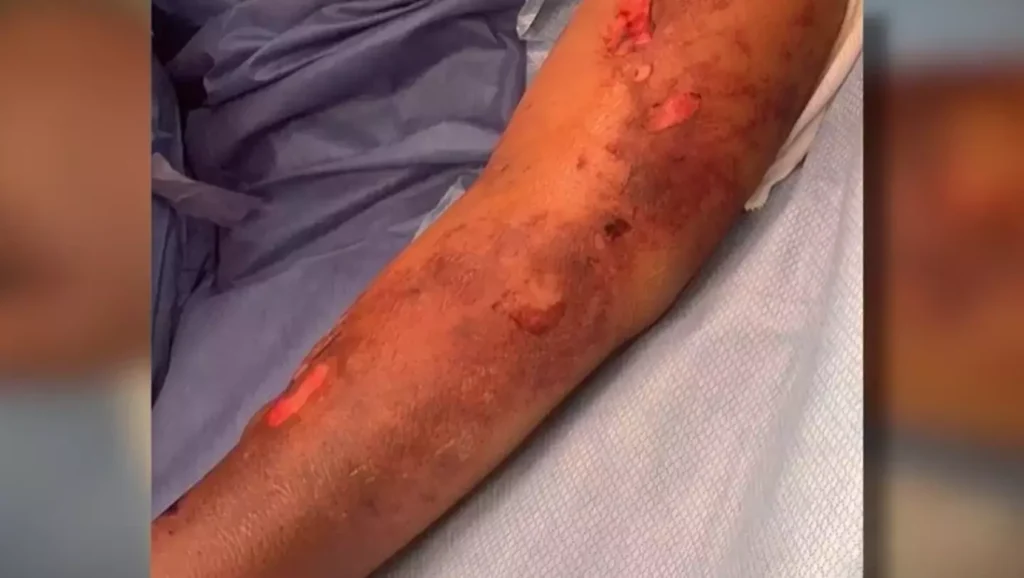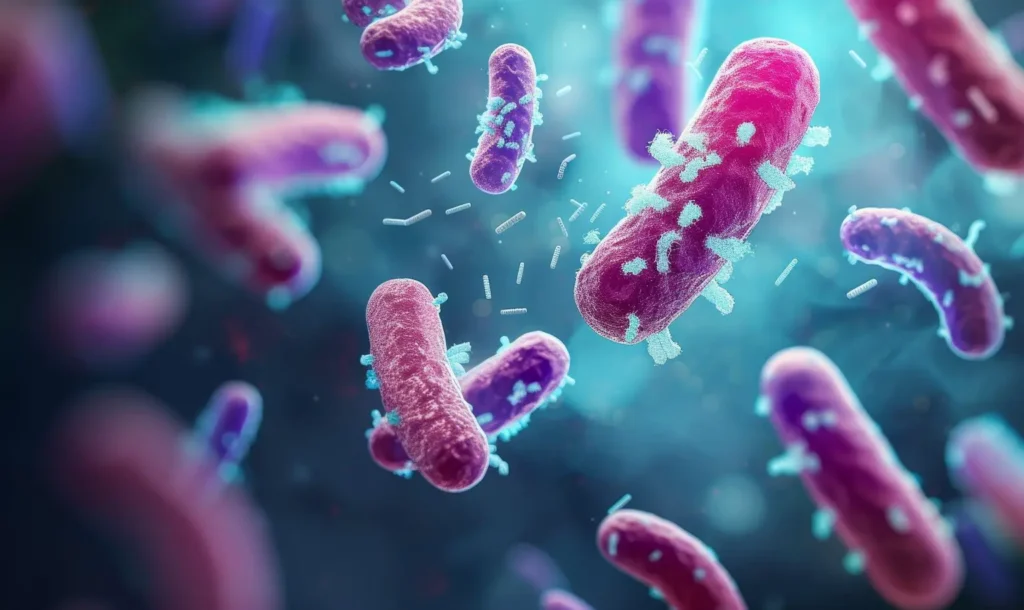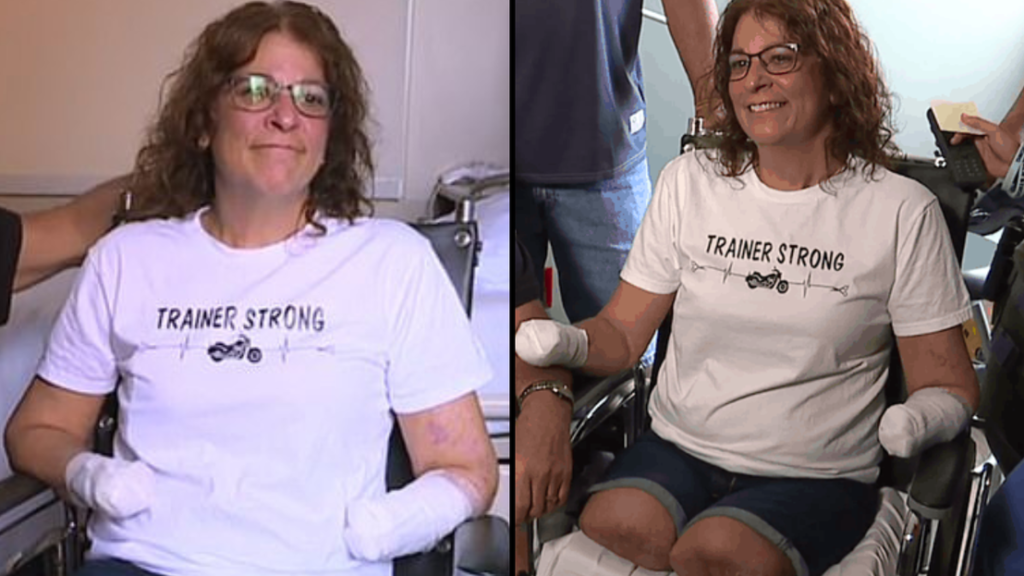A stark warning about kissing your dog on the lips has been issued by a vet after a woman needed her legs and arms amputated..
Dog owners have been told to think twice before letting their pets lick them after a woman had to have all four limbs amputated.
Marie Trainer of Stark County, Ohio, had cut her hand on a minor cut she got during a 2019 vacation.
When she arrived home, her dog grabbed her with affectionate licks. She thought nothing of it until she got sick days later and ended up in serious illness.

Marie recounted to FOX News: “Just four days later, I wasn’t feeling good, just got sicker and sicker.”
Initially, Matt thought it was the flu and rushed her to the hospital.
At first, doctors were baffled, but her condition quickly deteriorated, and she slipped into a coma.
Tests showed Marie had been infected with Capnocytophaga canimorsus, a bacteria in dogs and cats’ saliva.
And when it does get into the human body, but particularly through cuts and wounds, it can trigger a dangerous immune response.
In severe situations, it can result in blood clots which cutoff circulation to the limbs, thus requiring amputations.
Marie unfortunately lost both her arms and legs.

According to experts, dogs can unknowingly pass on zoonotic diseases, that is, illnesses that humans can catch from animals.
A Penn State research team specifically cautioned against antibiotic-resistant salmonella. Sophia Kenney, a lead author of the study, explained:
“For salmonella, we think about the role of agriculture and transmission; we think about eggs; we think about beef.”
“We don’t let cows in our beds, or lick our faces, but we do dogs, she said. We have this really close bond with companion animals in general, and we have a really close interface with dogs,” she says.

Falls Village Veterinary Hospital in Raleigh, North Carolina, echoed these concerns:
“Dogs have a reputation for sniffing, licking and eating anything and everything. Bacteria, including E. coli, campylobacter and salmonella, which are zoonotic and can be transferred between species, can live in their mouths.”
“Exposure to these microorganisms is unlikely to cause severe effects in most healthy adults,” but can result in gastrointestinal issues and oral infections, they added.”
“Giardia, roundworms and hookworms – parasites that can be spread through licks – can also cause abdominal pain and digestive difficulties in dogs and humans,” Daniela Bedolla said.
Since her life-changing experience, Marie has been on a long road to recovery. Extensive rehabilitation has been done to get her to adapt to prosthetic limbs.
Reflecting on her progress, she said: “It’s been challenging. Learning how to walk was the hardest thing, but I’m good, I’m doing good.”








